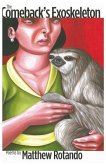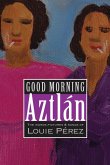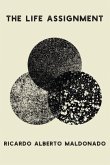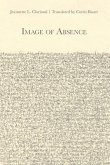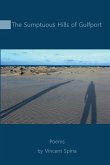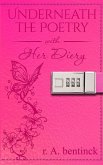The Lady of Elche showcases an indispensable collection by acclaimed poet Amanda Berenguer, available for the first time with a complete English translation, alongside the Spanish poems, as well as a companion essay by Kristin Dykstra. The Lady of Elche is Kristin Dykstra's translation of one of Amanda Berenguer, 's most acclaimed collections of poetry. The many faces surfacing through The Lady of Elche's portraits hint at Berenguer's multifaceted poetics writ large. Dazzling landscapes exhibit her characteristic curiosity about the world, merging past with present. Berenguer pointedly cycles her mythological navigations of the surface toward revelations of a counterforce: other knowledge percolating below. And so it is not only the ancient Iberian sculpture known as "La Dama de Elche" that she unearths. Berenguer descends in search of images silenced by the neofascist Uruguayan dictatorship of 1973-1985, whose exercises in annihilation and complicity still impact public life today. Presented here in its first bilingual edition, the 1987 book drips with prophecy still relevant to our own time. "Amanda Berenguer's poems from the 1980s collected under the title of The Lady of Elche are, like the unburied sculpture of the title, an enigma of identity, history, and memory constructed through shards of language cutting through time and space. The poetic voice emerges in Montevideo, in Spain, in the Grand Canyon, in New York, in search of self and connection. Berenguer's images are as jarring and blunt as the 'mandrake moon, ' which 'stuck nightmares / and perversion into both sockets of my eyes, ' and as haunting and fluid as 'an oscillating forest of submerged cadavers / feet shackled in cement cubes.' Dykstra's phenomenal translations are works of art themselves, poignantly rendering Berenguer's shifting registers and movement through the far reaches of modernity into English-language poetry. The 'nervous memory-fish' of Berenguer's challenge to the would-be censors of the Americas flit through the waters of our shared, violent history, emerging from its depths to demand a reckoning that is seemingly forever displaced."--Juliet Lynd, scholar of Latin American literature and culture "Amanda Berenguer presents the poet's voyage as a vocable consumption, an entity of substrate lis-tening. Over the course of these pages, in a mounting inevitability of humanity, Berenguer posi-tions the embodied self as a new self--a ravenous becoming towards a breathless forage into the temporal, 'a limitless birthing between silence and voice.' Kristin Dykstra's sensuous translation reveals an essential prophecy of ownership within witness and cadence. The Lady of Elche is a call for us to stop at each precipice as newborn deities, 'spectra of light rays, ' to incorporate all we ex-perience into our language, more importantly, to realize that true revolution is inherent within those footsteps."--Edwin Torres, author of Quanundrum: [i will be your many angled thing] Poetry. Latin American Studies. Translation.
Hinweis: Dieser Artikel kann nur an eine deutsche Lieferadresse ausgeliefert werden.
Hinweis: Dieser Artikel kann nur an eine deutsche Lieferadresse ausgeliefert werden.


